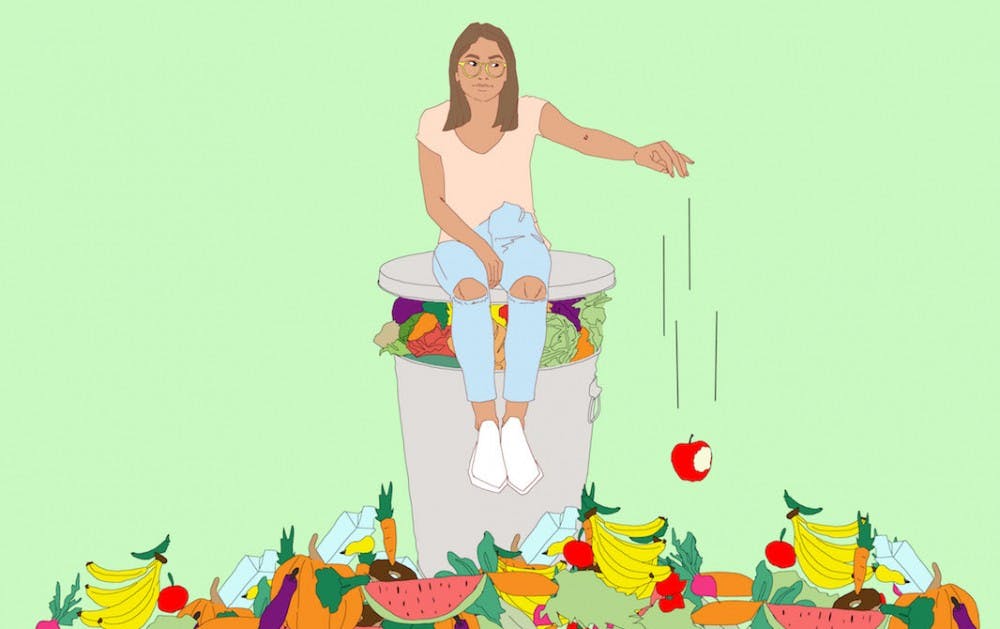Walking through the dining hall, students are busy eyeing the teriyaki chicken wings with rice, freshly grilled cheeseburgers and the tiramisu at the dessert bar and wondering how they will carry it all back to their table.
However, trying to balance as much food as possible can be harmful when much of it ends up in the trash. Students should have sustainability on their minds as they choose their meals in ASU's dining halls.
Tempe’s on-campus dining centers, including Pitchforks, Hassayampa and more, offer an “All-You-Care-To-Eat" dining experience, making it easy to overindulge. Students can grab what they want — even if it’s more than they can finish — and place any leftovers on the collection trays.
While this may seem harmless, students should recognize that taking excess food contributes to thousands of pounds of wasted food yearly.
According to Aramark, Sun Devil Dining's food supplier, the average student wastes nearly 2.4 ounces of food at each meal, equating to about 95 pounds of food each academic year.
Rather than viewing dining halls as a luxury to enjoy carelessly, students should consider how they might reduce waste. Small actions they can make include taking only what they know they can consume or waiting until they’ve finished their meal before considering dessert.
Krista Hicks, a sustainability manager for Aramark, said students should keep in mind all that’s lost when they throw away uneaten food.
“It’s important to only take what you can eat," Hicks said. "Otherwise, you contribute not only to food waste, but also to the waste of water, energy and agricultural land. If students only take what they need in the dining halls, everything that goes into the production of food can be saved as well.”
The loss of these resources is significant because there are others who could put them to better use. For example, according to St. Mary's Food Bank, about two million Arizonans struggle with inadequate access to food each year.
As members of our community, we should show our care for those who are less fortunate by helping the University carry out its waste-preventing initiatives.
ASU donates surplus food to people in need through partnerships with Food Donation Connection and Waste Not. The University also strives to prevent waste through its practices of composting, keeping trays out of dining halls and offering reusable cups and take-out containers.
Students might argue that saving a little bit of food at each meal wouldn’t make a large impact, and they would technically be right. But if students collectively take on a more sustainable mindset, we could prevent a significant amount of waste.
“We’re at a large university, and we have a lot of people eating at our dining halls every day, so just a small amount of food saved per person can add up to a lot,” Hicks said.
Because of this, the simple action of taking less in the dining hall would have the almost immediate outcome of more food being donated to locals sturggling with hunger. If interested, students can also donate to or volunteer for Waste Not in order to make a more personal and direct contribution.
At the very least, when students enter a dining hall, they should only care to eat as much as they need.
Reach the columnist at jkbeneve@asu.edu or follow @JacobBenevento on Twitter.
Editor’s note: The opinions presented in this column are the author’s and do not imply any endorsement from The State Press or its editors.
Want to join the conversation? Send an email to opiniondesk.statepress@gmail.com. Keep letters under 500 words and be sure to include your university affiliation. Anonymity will not be granted.
Like The State Press on Facebook and follow @statepress on Twitter.




